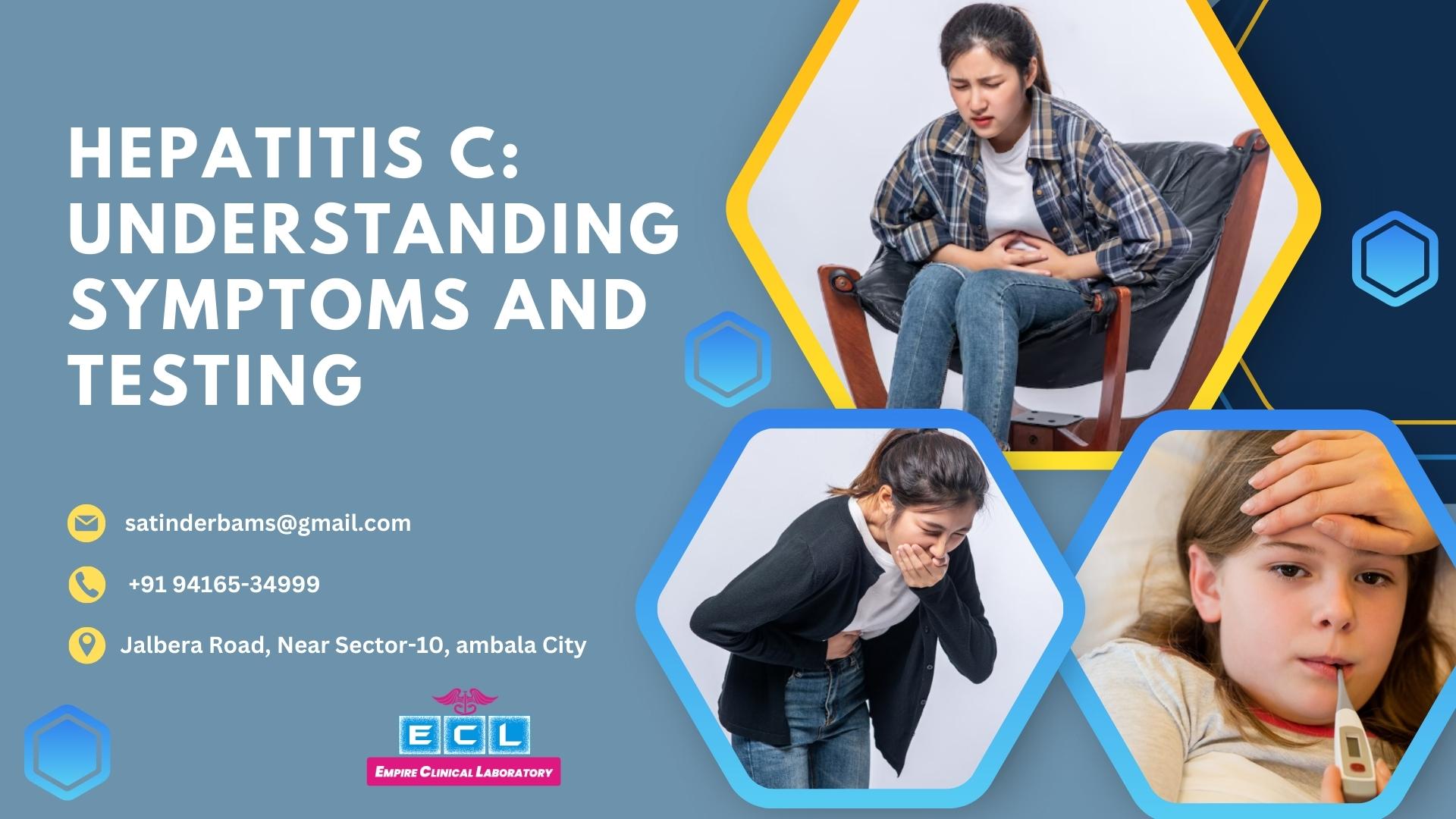Hepatitis C is a viral infection that affects the liver. In this article, we will discuss what liver disease is, its common symptoms, and the importance of testing for this condition.
What Is Hepatitis C?
liver disease caused by the hepatitis C virus (HCV). It can be a short-term illness or a long-term, chronic condition. If left untreated, it can lead to severe liver damage.
Common Symptoms:
Hepatitis C doesn't always show obvious symptoms, and many people may not even know they have it.
Fatigue: Feeling very tired and weak.
Jaundice: Yellowing of the skin and eyes.
Abdominal Pain: Discomfort or pain in the area of the liver.
Loss of Appetite: Not feeling like eating.
Nausea and Vomiting: Feeling sick to your stomach and throwing up.
Dark Urine: Urine turning dark yellow or brown.
Joint Pain: Aching in the joints.
Importance of Testing:
Getting tested for liver disease is crucial, especially if you are at risk. Early detection can prevent liver damage and other complications. Testing is simple and involves a blood test that checks for the presence of HCV antibodies.
Empire clinical Laboratory
Enjoy the convenience of free sample collection right from the comfort of your home with Empire clinical Laboratory. Say goodbye to the hassle of travelling to the lab – we bring our services to you!
Who Should Get Tested?
Getting tested for liver disease if:
- You have shared needles or equipment for drug use.
- You have had unprotected sex with a person who has liver disease.
- As a healthcare worker, you have been exposed to blood.
- You have HIV.
- You were born to a mother with liver disease.
- You have abnormal liver function tests.
Preventing Hepatitis C:
To reduce the risk of hepatitis C:
Practice Safe Sex: Use condoms to prevent the spread of the virus.
Avoid Sharing Needles: If you use drugs, do not share needles or other drug equipment.
Be Cautious with Tattoos and Piercings: Make sure the equipment is sterile.
Get Vaccinated: There is no vaccine for liver disease, but vaccines are available for hepatitis A and B. Protecting your liver from other types of hepatitis is important.
Conclusion:
Hepatitis C, being a liver disease caused by the hepatitis C virus, is a condition that often exhibits hidden symptoms. Consequently, getting tested is essential, especially if you're at risk. In light of this, early detection and proper care can effectively prevent liver damage and enhance your overall health.









